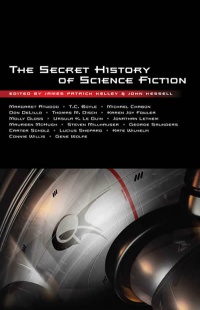 I thought it was time for some more Brunner (and hey, it’s always time for more Brunner), so I picked out More Things in Heaven from my unread books shelf and gave it a go. Published in 1973, this is an expanded and/or revised version of a 1963 work called The Astronauts Must Not Land (that’s a definite improvement in the title, I must say). I get the feeling it wasn’t revised quite enough, because the writing comes across as a little less mature or refined than Brunner’s later work that I’m familiar with — a little clumsier in terms of plot, a little less developed in terms of characterization. Nevertheless, it is Brunner we’re talking about, and it’s not like he could actually write a bad book; even his below-average work holds its own against many other writers. So, this one is still worth reading, and it does come with a payoff in the form of a grand mind-blowing idea at the end.
I thought it was time for some more Brunner (and hey, it’s always time for more Brunner), so I picked out More Things in Heaven from my unread books shelf and gave it a go. Published in 1973, this is an expanded and/or revised version of a 1963 work called The Astronauts Must Not Land (that’s a definite improvement in the title, I must say). I get the feeling it wasn’t revised quite enough, because the writing comes across as a little less mature or refined than Brunner’s later work that I’m familiar with — a little clumsier in terms of plot, a little less developed in terms of characterization. Nevertheless, it is Brunner we’re talking about, and it’s not like he could actually write a bad book; even his below-average work holds its own against many other writers. So, this one is still worth reading, and it does come with a payoff in the form of a grand mind-blowing idea at the end.
The basic story is about the first voyage of the first interstellar vessel and its return — more about the return, actually. The Starventure is a faster-than-light vehicle, traveling through that mysterious, unknown medium simply called “hyperspace.” The means for accomplishing this have been recently discovered but not completely understood, and the process is described in rather vague terms even by the scientifically knowledgeable. As you can imagine, this lack of understanding provides an opening for weirdness to enter the plot, which it promptly does.
David Drummond is a well-known science journalist whose brother Leon is a Starventure crewmember. As the time nears for the ship’s return, something strange happens: David sees his brother walking down the street! Or at least he thinks he does. He soon becomes convinced that his mind was playing tricks on him, and drops the matter. But when others begin having the same kinds of experiences, and people start seeing bizarre images in the sky, then David knows humanity is in over its head, dealing with something completely unknown. As he and his associates work to uncover the nature of the mystery (being hushed up by governmental caution), David ultimately learns the truth, and that truth turns his world upside down and forever changes our understanding of what we consider “our universe” and our place in it. Here is David contemplating the situation:
Somewhere in the back of my mind, and I imagined in the minds of most people of this twenty-first century, there had been a dream of Man encompassing the universe by the power of his intelligence. That was the vision which had inspired Starventure.
Could we have been deluding ourselves? Had we truly been misled into thinking that because we seemed to understand our own little corner of the cosmos we were on the way to understanding the whole of it?
I can’t tell you any of the specifics of what David learns because that would just give it all away. However, I will say that I love the way Brunner works some mythology and philosophy into the mix. The ultimate explanation for all the strange happenings has a connection to Plato’s concept of ideal forms, and it also has some bearing on various myths involving loss, such as the lost Garden of Eden, the fallen angels, and the like.
If you like Brunner, this one’s worth your time. If you don’t like Brunner, well then, what’s wrong with you?














